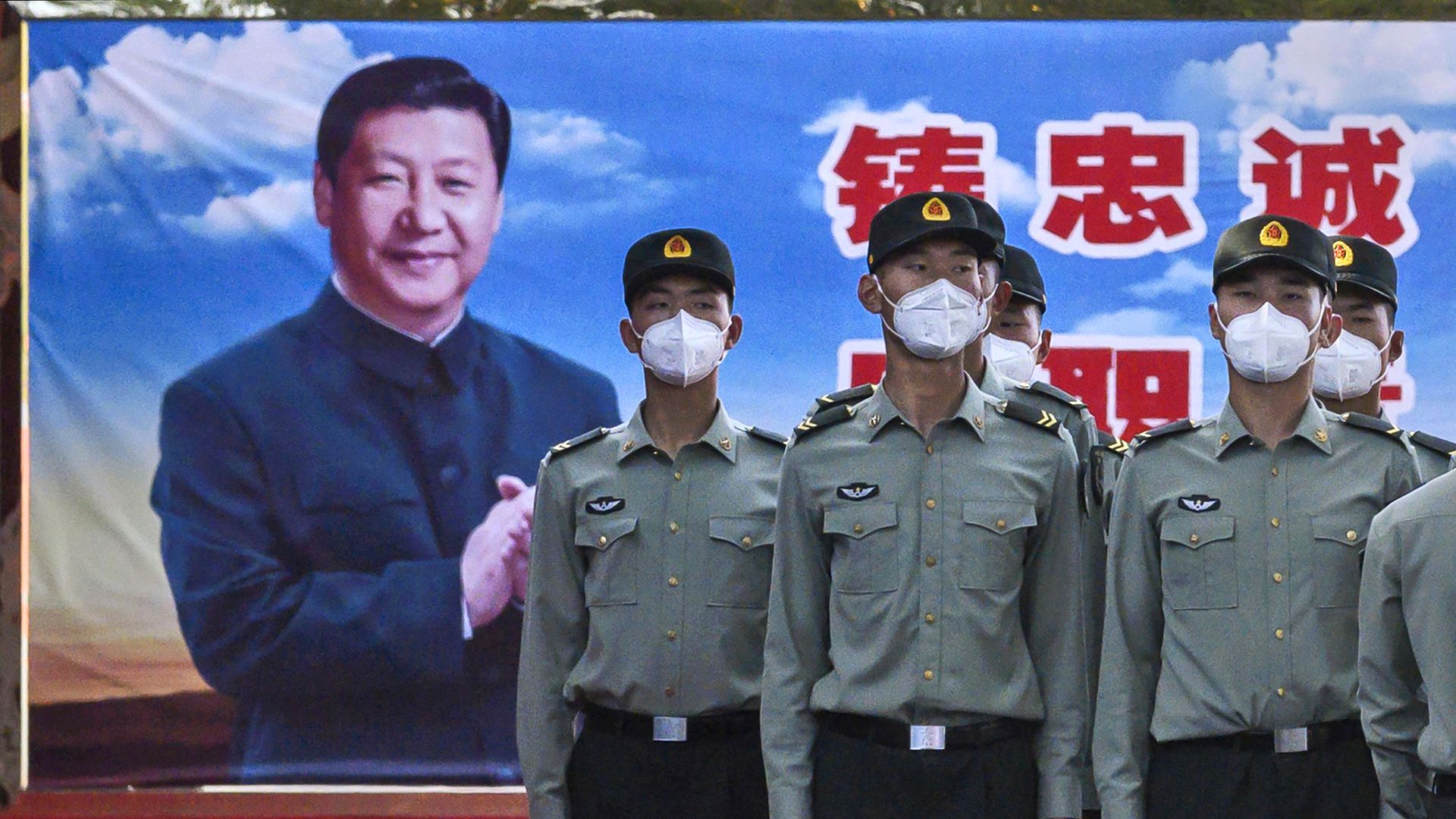Bethany Allen-Ebrahimian

China's leaders are expanding an anti-corruption campaign targeting power centers within the military, risking instability and a crisis of confidence during a sensitive time in China's foreign relations.
Why it matters: Recent purges highlight the obstacles facing China's leader Xi Jinping as he tries to complete his military modernization drive by 2050.
Driving the news: Nine Chinese generals and three Chinese defense technology officials were removed from a top Chinese Communist Party advisory body late last week, according to Chinese state media.
- The generals largely came from the Rocket Force, which oversees China's missile program.
- "The strategic nuclear force is what China relies on as the bottom line of its national security, and the last resort on Taiwan," said Yun Sun, China program director at the DC-based Stimson Center, told Reuters.
- "It will take some time for China to clean up the mess and restore confidence in the Rocket Force's competence and trustworthiness. It means for the time being, China is at a weaker spot."
Details: The defense industry officials, meanwhile, all work at state-owned missile manufacturing companies.
- "These officials' removal may engender political instability among the political leadership," said Wen-Ti Sung, a nonresident fellow at the Atlantic Council's Global China Hub. Three members of the powerful Politburo also once worked at the same three companies of the ousted officials.
- In China's opaque high-level politics, that kind of link between powerful officials and fallen officials could mean Xi is targeting patronage networks.
Between the lines: Corruption in the People's Liberation Army, China's military, has long been endemic and military officials have been resistant to efforts to address it.
- Evidence of corruption in the advanced weapon systems and components sectors could detract from China's push to modernize its military and "may chip away at China's ability to catch up with the U.S. militarily," Sung added.
The other side: The Chinese government has not commented on the personnel shake-ups, though in July Xi called for "deepening reforms" in the armed forces and "improving the strategic management of the military."
- "Corruption is the biggest cancer that harms the vitality and combat effectiveness of the party, and anti-corruption is the most thorough self-revolution," Xi said at the 20th Party Congress last year.
Background: The removals are the latest in a series targeting top-level defense officials in China.
- In August, two generals overseeing China's nuclear and missile force were removed and, in a highly unusual move, replaced with officials from outside the force.
- Former Chinese defense minister Li Shangfu was detained earlier this year and then removed from his position. Former Chinese foreign minister Qin Gang, who previously served as China's envoy to the U.S., was also removed from his position this year.
- Chinese authorities have given no explanation for the removals, but rumors have swirled of procurement-related corruption, affairs and even espionage committed by the fallen officials.
What to watch: China appointed a new defense minister on Friday, navy admiral Dong Jun, a move that could help relieve the uncertainty the U.S. and other governments have felt since Li's detention.
No comments:
Post a Comment